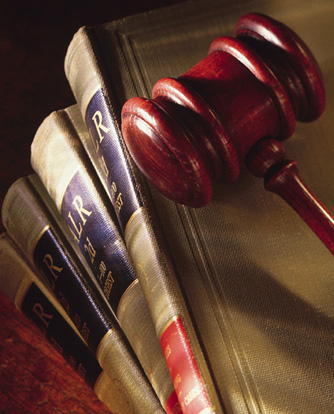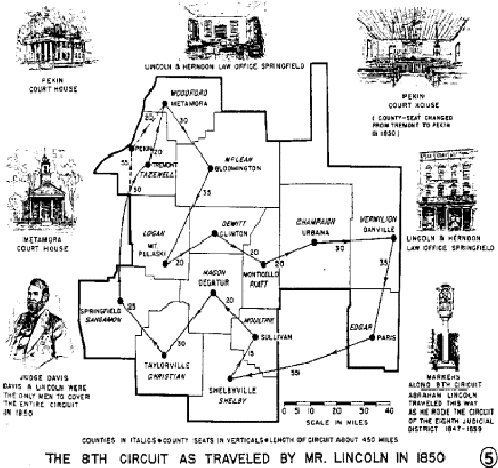Lesson One: What is a Lawyer?

In this lesson, the students found out what it means to be a lawyer and what types of responsibilities a lawyer has. After finding out the roles of a lawyer and how to become one, the students learned how Lincoln became a lawyer.
Lawyer Information
• Lawyers represent people in court. The try and argue on behalf of
a person so that they can win the trial or case. Remember, this is not just
about sending a person to jail. It can just be to settle a debt or a boundary
line.
• They apply the law to events faced by their clients. For example,
a person can complain that his neighbor has built a fence 2 feet into his
property. The court can decide exactly where the boundary is supposed to be
and if the fence needs to be taken down.
• They have to be familiar with all the rules of our government so that
they can present valid information to the judge. A lawyer will not be able
to argue well for a person if he or she doesn’t know the rules.
• They do research, interview witnesses and clients to prepare for trial.
This is how lawyers get their information and are able to argue for the client.
• They are also advisors. They tell people their legal rights and duties.
They give suggestions for what to do if one of their rights has been violated.
• They usually work in offices, libraries and courtrooms. They may have
to travel to get evidence or appear in court.
• Lawyers charge fees that the client pays. This is how a lawyer earns
his living.
• First, you have to have a license. Just like you need a driver license
to drive, you need a license to practice law. To get the license you must
pass the bar exam and a written ethics exam.
• You must complete at least 7 years of college. 3 of those years will
be at a law school.
• You must be good at speaking, reading, research, analyzing and thinking
logically
Lincoln as a Lawyer Information
• In 1834, Lincoln met John Todd Stuart when he was serving on the House
of Representatives in Vandalia, IL. This was the state capital at the time.
Springfield didn't become the capital for a few more years.
• Stuart was an attorney and told Lincoln that he should become a lawyer
because it was the perfect job for a person who wanted to become a politician,
which is what Lincoln wanted to do.
• Lincoln had thought about becoming a lawyer before. He often hung
around courthouses and watched lawyers do their job. He had also served on
juries before, appeared as a witness, and had drawn up legal documents for
neighbors.
• He was unsure of himself because he had very little formal education.
Lincoln didn't have time to go to school when he was younger. He had to work.
• Stuart told him that he could do it. Most lawyers didn't go to college.
All Lincoln had to do was read laws books and then pass the bar exam.
• Lincoln decided to go for it. He borrowed law books and bough a few
from auctions. Everywhere he walked, he had a book with him. He studied law
through books for three years. He passed the bar exam in March of 1837.
• He became a Junior Law Partner in John Todd Stuart's Springfield office.
• He slept on a couch in Stuart's office because he couldn't afford
to live anywhere else. However, a friend of Lincoln offered him a place to
sleep in his own apartment.
• Stuart coached Lincoln to help him become a better lawyer. Together
they built the busiest practice in Springfield.
• After many years, Lincoln opened his own law office. He invited William
Herndon to join him.
-- The building was 2 cluttered rooms on the second floor of a brick building
across from the state capital.
--His favorite filing place was the lining of his silk top hat. Isn’t
that a silly place to store important files?
--They handled more than 100 cases a year. They were one of the most sought
after attorneys in the state!
--Lincoln represented all sorts of cases and people. He didn’t refuse
anyone based on income.
--Before a court case, he would find all the information he could about the
case. This way, he was prepared for anything that could happen in court.

Resources
Freedman, R. (1987). Lincoln: A photobiography. New York: Clarion Books. 22-43.
“Lawyers.” (2006). Occupational Outlook Handbook, 2006-07 Edition,
Washington DC: Government Printing Office.
